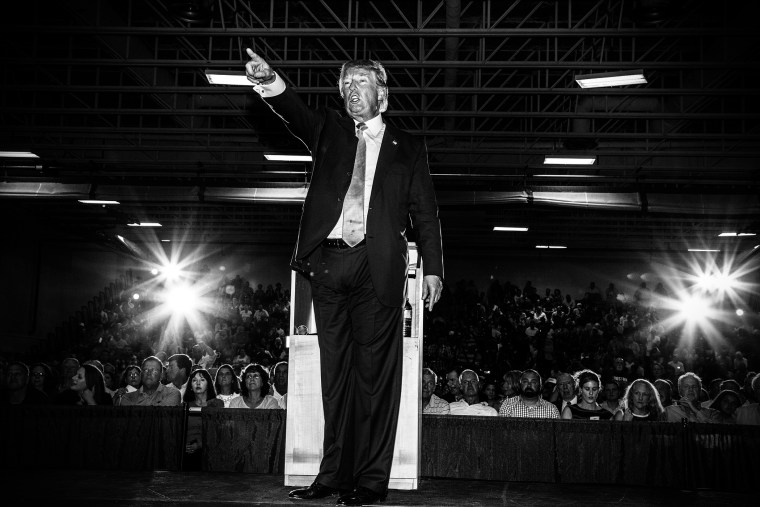As Hillary Clinton's popular-vote lead over Donald Trump
passes 2 million, a growing number of Democrats are
eager to have a debate over the existence of the Electoral College. If the discussion ever begins in earnest, they may even have an unexpected ally: Donald Trump.Four years ago, when some Republicans initially thought President Obama would lose the popular vote, Trump
declared, "The electoral college is a disaster for a democracy." In a tweet he later deleted, Trump
added on Election Night 2012, in reference to Obama, "He lost the popular vote by a lot and won the election. We should have a revolution in this country!"Of course, now it's Trump who "lost the popular vote by a lot and won the election." What's interesting, though, is that Trump, more than any candidate in American history, has benefited from the Electoral College -- but he still doesn't like it.In his recent "60 Minutes" interview, the president-elect
conceded, "I'm not going to change my mind just because I won. But I would rather see it where you went with simple votes." Trump
said something similar to the
New York Times yesterday:
"So we won that by a lot of votes and, you know, we had a great victory. We had a great victory. I think it would have been easier because I see every once in a while somebody says, 'Well, the popular vote.' Well, the popular vote would have been a lot easier, but it's a whole different campaign."I would have been in California, I would have been in Texas, Florida and New York, and we wouldn't have gone anywhere else. Which is, I mean I'd rather do the popular vote from the standpoint -- I'd think we'd do actually as well or better -- it's a whole different campaign."
Trump went on to joke, "I was never a fan of the Electoral College until now."It'd be an exaggeration to say the president-elect endorsed doing away with the electoral college altogether -- he didn't go quite that far -- but Trump nevertheless twice said yesterday that he sees the popular vote as "easier" and he'd "rather" have it than the alternative.If even the beneficiary of the Electoral College isn't a fan, and the current system failed in
two of the last five presidential cycles, isn't it about time for a meaningful debate about reform?Postscript: On a related note,
The Atlantic's Peter Beinart had a
fascinating piece this week on the Electoral College being designed by the Constitution's framers to prevent an irresponsible demagogue, such as Donald Trump, from taking office.
It is "desirable," Alexander Hamilton wrote in Federalist 68, "that the sense of the people should operate in the choice of" president. But is "equally desirable, that the immediate election should be made by men most capable of analyzing the qualities adapted to the station." These "men"—the electors––would be "most likely to possess the information and discernment requisite to such complicated investigations." And because of their discernment—because they possessed wisdom that the people as a whole might not—"the office of President will never fall to the lot of any man who is not in an eminent degree endowed with the requisite qualifications."As Michael Signer explains, the framers were particularly afraid of the people choosing a demagogue. The electors, Hamilton believed, would prevent someone with "talents for low intrigue, and the little arts of popularity" from becoming president. And they would combat "the desire in foreign powers to gain an improper ascendant in our councils." They would prevent America's adversaries from meddling in its elections. The founders created the Electoral College, in other words, in part to prevent the election of someone like Donald Trump.
